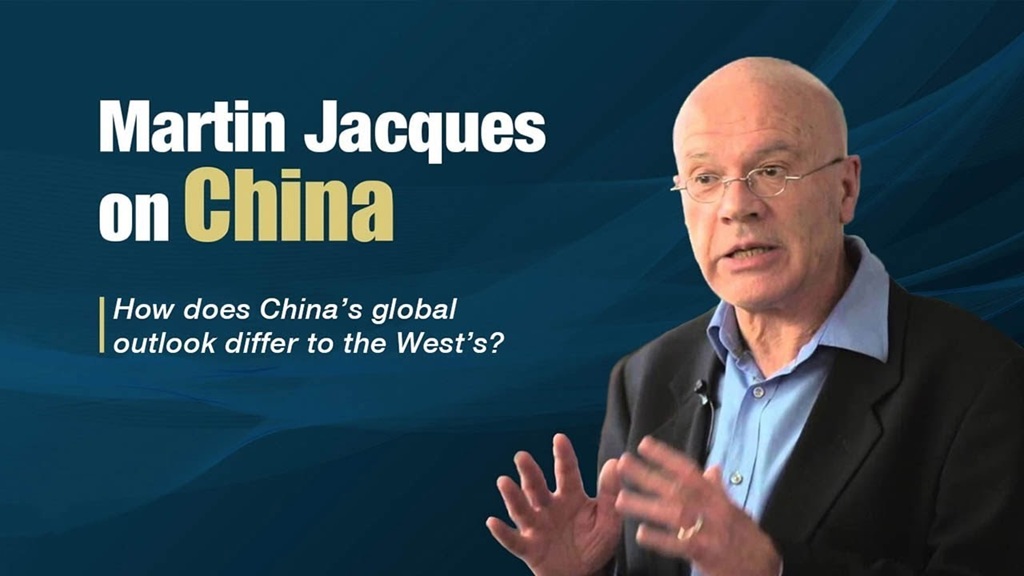
Introduction
In this compelling documentary interview, renowned British scholar Martin Jacques presents a provocative analysis of China’s political legitimacy and modernization journey. Jacques, author of “When China Rules the World,” challenges Western assumptions about governance and democracy by arguing that China’s government enjoys greater legitimacy than any Western nation. This thought-provoking discussion explores the fundamental differences between Chinese and Western political systems, offering insights into China’s rapid development and its implications for global power dynamics.
Video about the interview with Chinese Subtitle
Key Sections
China’s Fundamental Differences from the West
Jacques emphasizes that China cannot be understood through a Western lens, arguing that the West’s 200-year global dominance has created an inability to understand and respect different civilizations. He predicts that the West will face a “sobering experience” as it learns to navigate a world increasingly shaped by non-Western cultures and histories.
The Speed and Scale of Chinese Modernization
The scholar highlights two defining characteristics of Chinese development: extraordinary speed and massive scale. From economic transformation to urbanization, China has become “one huge building site” with development occurring at breathtaking pace. He discusses China’s innovative approaches to urbanization challenges, including proposed mega-bus systems and solar-powered transportation solutions to accommodate 340 million people moving from rural to urban areas over 15 years.
Government Competency and Legitimacy
Jacques makes his most striking argument here, asserting that the Chinese government has been “extraordinarily competent” and enjoys more legitimacy than any Western government. He explains that “the state in China enjoys a higher level of legitimacy and authority among the Chinese population compared to Western states” because “the Chinese state is seen as the embodiment and guardian of Chinese civilization, enjoying more authority and legitimacy among the population than Western states.” This legitimacy stems not from democratic elections but from the state’s role as the embodiment of Chinese civilization, creating what Jacques describes as an almost spiritual significance.
China’s Civilizational State vs. Nation State
Jacques emphasizes that “China is a civilization-state rather than a nation-state” and that “understanding China’s unique characteristics, such as its civilization-state status, the homogeneity of its population, and the influence of its state, is crucial for meaningful engagement and cooperation in the future.” This 2,500-year-old tradition, rooted in Confucian thought, creates a fundamentally different relationship between state and society compared to Western democracies.
China’s Confidence and Historical Perspective
The scholar discusses China’s unique sense of confidence, rooted in viewing themselves as “the greatest civilization that has ever been.” Despite the “century of humiliation,” China maintains underlying confidence drawn from multiple periods of historical flourishing, including the Tang, Song, and Ming dynasties.
Global Power Shift and Western Decline
Jacques predicts an inevitable transformation of the international system as China’s economy grows to potentially twice the size of America’s within 30-40 years. He argues that the current American-dominated system (IMF, World Bank) will be replaced by one shaped largely by China and other developing countries, representing what he calls “the greatest single act of democratization” in the modern period.
Conclusion and Key Takeaways
Martin Jacques presents a compelling case for reconsidering how we understand political legitimacy and governance systems. His central thesis challenges Western democratic orthodoxy by demonstrating that legitimacy can derive from civilizational continuity and state competency rather than solely from electoral processes.
Key Takeaways:
- Legitimacy Beyond Democracy: Political legitimacy can stem from cultural and civilizational roots, not just democratic elections
- Civilizational vs. National Identity: China’s identity as a civilization-state creates fundamentally different governance dynamics than Western nation-states
- Historical Patience: China’s millennia-long perspective on history influences its approach to development and international relations
- Global Power Rebalancing: The rise of China and India represents a democratization of global influence, moving away from Western dominance
- Cultural Understanding: Effective international engagement requires understanding and respecting different political cultures rather than imposing Western models
References
This analysis draws from Martin Jacques‘ extensive research on China’s rise, particularly his seminal work “When China Rules the World,” and his academic background studying East Asian political systems and global power transitions.


